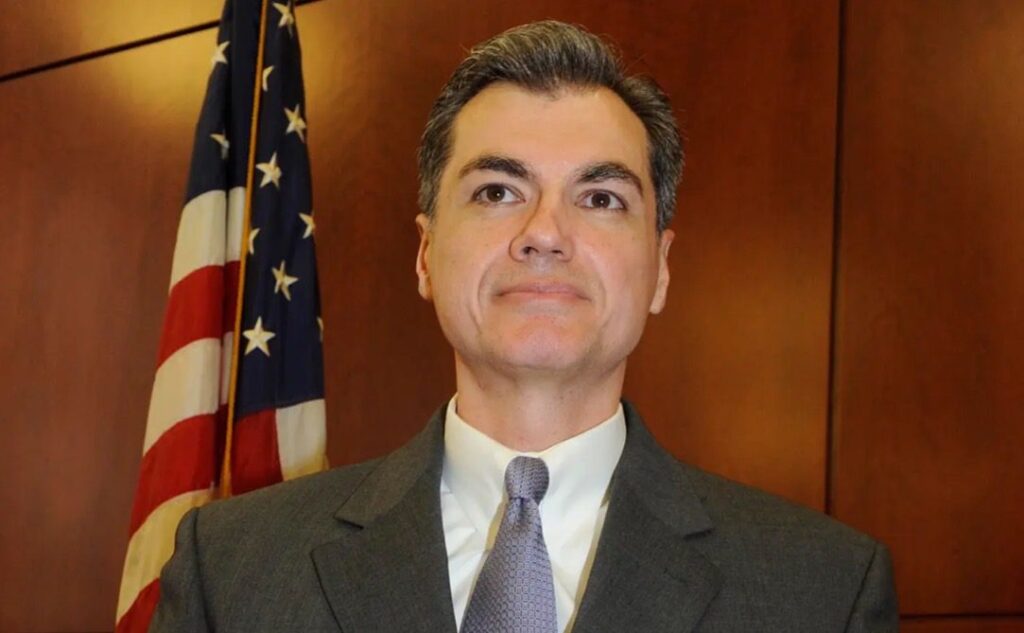In a recent turn of events, President Donald Trump has publicly criticized Judge Juan Merchan following his decision to uphold 34 felony convictions against Trump. These charges stem from accusations of hush payments to adult film star Stormy Daniels, whose real name is Stephanie Clifford, orchestrated through Trump’s then-attorney, Michael Cohen. The Manhattan District Attorney, Alvin Bragg, contended that Trump engaged in fraudulent behavior by categorizing these payments as “legal fees.” Despite the Supreme Court’s ruling on presidential immunity, which traditionally protects presidents from prosecution for actions taken while in office, Judge Merchan dismissed Trump’s arguments for overturning the verdict based on this defense. The tensions surrounding the case escalated when Merchan delayed Trump’s sentencing indefinitely, further deepening the dispute between Trump and the judiciary.
In response to the ruling, Trump expressed disapproval of Judge Merchan’s actions, referring to an order he deemed “psychotic.” Trump charged that the judge was exhibiting bias and disrespect toward the Supreme Court’s determination on presidential immunity. He took to social media platform Truth Social to voice his frustrations, labeling the judge as “deeply conflicted, corrupt, biased, and incompetent.” Trump’s accusations extended to claiming that Merchan’s decision could undermine the very fabric of the presidency itself, suggesting that it sets a dangerous precedence that could threaten future leaders. He argued that Merchan’s rulings were in direct conflict with the Constitution, asserting that the entire legal proceeding was a politically motivated “witch hunt” designed to discredit him as a candidate.
Trump’s legal team has been proactive in trying to dismiss the case altogether, submitting various motions aimed at overturning the convictions. However, Judge Merchan’s recent rejections of these motions have intensified the acrimony between Trump and the judiciary. As the legal landscape evolves, Speculation continues around the potential political ramifications of the case, particularly as Trump seeks to maintain support among his base in light of the ongoing legal challenges. Although Trump insists that the case has no legal merit, pointing to arguments from legal scholars, the court has yet to acquiesce to his demands.
Adding to Trump’s woes, the Supreme Court recently declined to lift a gag order placed upon him in relation to the case, which has compounded his frustration. This gag order restricts Trump from publicly discussing certain aspects of the legal proceedings, provoking further allegations from him about violations of his First Amendment rights. The refusal by the Supreme Court to intervene marks a significant moment, as it suggests a commitment to upholding judicial procedures amid politically sensitive cases. Trump’s situation underscores the volatile intersection of politics and the legal system, raising concerns regarding the integrity and impartiality of the justice process.
In his critiques, Trump pointed to the alleged political motivations behind the case, asserting that it mirrors a broader trend of legal challenges sought by his political rivals. By targeting Judge Merchan and the Manhattan District Attorney’s office, Trump aims to frame the proceedings as part of a concerted effort to undermine his 2024 presidential campaign. He references the opinions of various legal analysts to reinforce his argument that the case is without merit and should never have progressed beyond initial filings. This narrative serves to galvanize his supporters, positioning himself as a victim of what he characterizes as a politically driven legal assault.
Overall, the ongoing legal perceptions surrounding Trump’s case and Judge Merchan’s rulings highlight the polarized nature of American politics today. As Trump continues to assert his innocence and push back against the legal system, the ramifications of this case could significantly impact his political future and the broader discourse on presidential accountability. The confrontation between Trump and the judiciary is emblematic of the broader challenges facing the nation, as it grapples with issues of governance, legal authority, and individual rights, all while the political landscape continues to evolve. As the legal battles persist, the implications for both Trump and the judicial system become increasingly complex, underscoring the ongoing tensions that characterize contemporary American politics.

